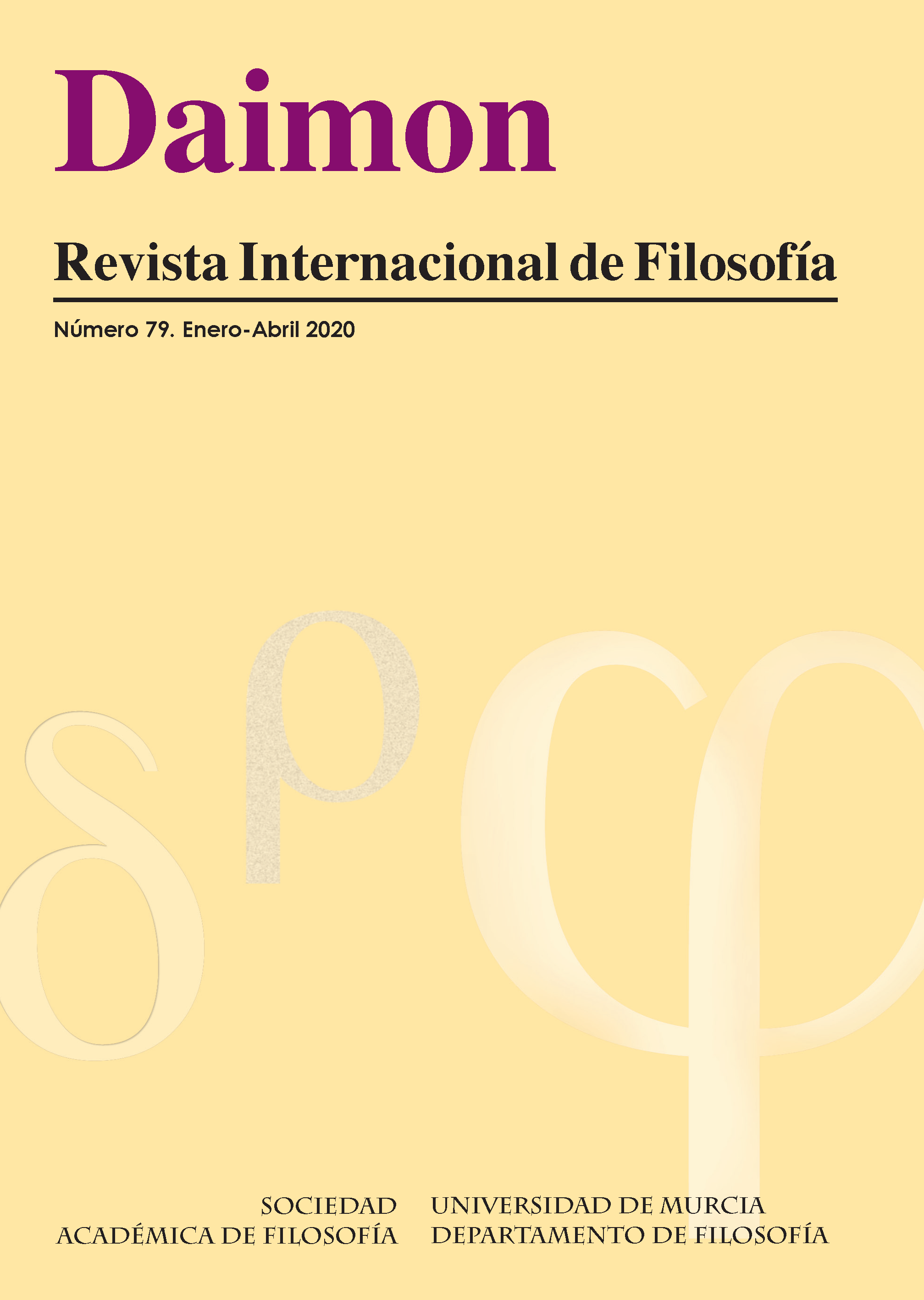A name of one’s own: gender and the politics of naming
Abstract
This paper aims to contribute to the critical comprehension of the politics of the proper name and their role in relation with state regulation of gender. We depart from an exploration of the violence involved in the relationship between the proper name and its referent, following different approaches from the philosophy of language. We make use, specifically, of Judith Butler’s understanding of proper names as gender performatives. Finally, we address the recent history of legislation and administrative practices in Spain in order to expose the disciplinary character of state naming policies and, in particular, the administrative violence that, as Dean Spade puts it, accompanies processes of gender transitioning.
Downloads
-
Abstract781
-
PDF (Español (España))519
References
Athanasiou, Athena (2012), «‘Who’ is that name? Subjects of gender and queer resistance, or the desire to contest», European Journal of English Studies, nº 16 – 3, pp. 199-213.
Austin, John L., (1988), Cómo hacer cosas con palabras, Barcelona: Paidós.
Butler, Judith (2002), Cuerpos que importan, sobre los límites materiales y discursivos del “sexo”, Barcelona: Paidós, pp. 193-300
Butler, Judith (2004), Lenguaje, poder e identidad, Madrid: Síntesis.
Butler, Judith (2006), Deshacer el género, Barcelona: Paidós.
Derrida, Jacques (1986), De la gramatología, Madrid: Siglo XXI.
Derrida, Jacques (1998), «Firma, acontecimiento, contexto», en Márgenes de la filosofía, Madrid: Cátedra, pp. 347-372.
Finch, Janet (2008) “Naming Names: Kinship, Individuality and Personal Names”, Sociology, vol. 42, n. 4, pp. 709-725.
Galofre Morelo, Pol (2007), «La nueva ley ¿es tan buena como nos la venden?», en: Mercedes García Ruiz (ed.): Transexualidad. Situación actual y retos de futuro, Asturias: Conseyu de la Mocedá del Principáu d’Asturies, p. 151.
Kripke, Saul (2005), El nombrar y la necesidad, México D.F.: UNAM.
Le Guin, Úrsula, K. (1983), Un mago de Terramar, Barcelona, Minotauro.
Lévi-Strauss, Claude (2008), Tristes trópicos. Barcelona: Paidós.
Platero, Lucas (2017), «Naming as the Locus of Trans*National Struggle», The Scholar & Feminist Online, nº 14-2, (http://sfonline.barnard.edu/thinking-queer-activism-transnationally/naming-as-the-locus-of-transnational-struggle/).
Sáez Rueda, Luis (2002), El conflicto entre continentales y analíticos. Dos tradiciones filosóficas, Barcelona: Crítica.
Salamanca, Gastón y Pereira, Lidia (2013), “Prestigio y estigmatización de 60 nombres propios en 40 sujetos de nivel educacional superior”, Universum, vol. 28, 2, pp. 35-57.
Santos, Ana Lúcia; Santos, Ana Cristina (2017) “O nome que não ousa dizer da intimidade - um estudo exploratório sobre nomeação", Antropologia Portuguesa, nº34-35, (en prensa).
Spade, Dean (2015), Una Vida Normal. Violencia Administrativa, Políticas Trans Críticas Y Los Límites Del Derecho, Barcelona: Bellaterra.
Stevens, Jaqueline (1999), Reproducing the State, New Jersey: Princeton University Press.
UNICEF (2002), «El registro de nacimiento: El derecho a tener derechos», Innocenti Digest, nº 9, pp. 4 (https://www.unicef-irc.org/publications/332/).
Wittig, Monique (2006) «La categoría de sexo», en El pensamiento heterosexual y otros ensayos, Barcelona y Madrid: Egales, pp. 21-29.
Las obras que se publican en esta revista están sujetas a los siguientes términos:
1. El Servicio de Publicaciones de la Universidad de Murcia (la editorial) conserva los derechos patrimoniales (copyright) de las obras publicadas, y favorece y permite la reutilización de las mismas bajo la licencia de uso indicada en el punto 2.
2. Las obras se publican en la edición electrónica de la revista bajo una licencia Creative Commons Reconocimiento-NoComercial-SinObraDerivada 3.0 España (texto legal). Se pueden copiar, usar, difundir, transmitir y exponer públicamente, siempre que: i) se cite la autoría y la fuente original de su publicación (revista, editorial y URL de la obra); ii) no se usen para fines comerciales; iii) si remezcla, transforma o crea a partir del material, no podrá distribuir el material modificado.
3. Condiciones de auto-archivo. Se permite y se anima a los autores a difundir electrónicamente las versiones pre-print (versión antes de ser evaluada) y/o post-print (versión evaluada y aceptada para su publicación) de sus obras antes de su publicación, ya que favorece su circulación y difusión más temprana y con ello un posible aumento en su citación y alcance entre la comunidad académica. Color RoMEO: verde.











